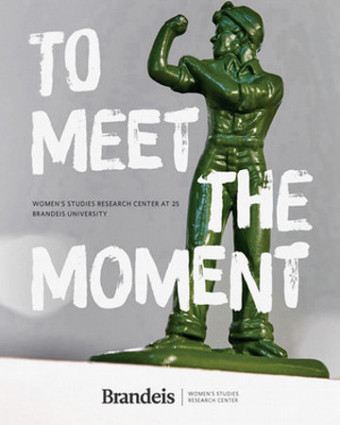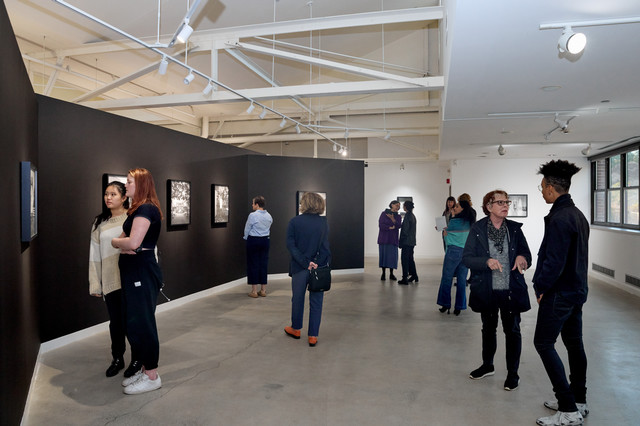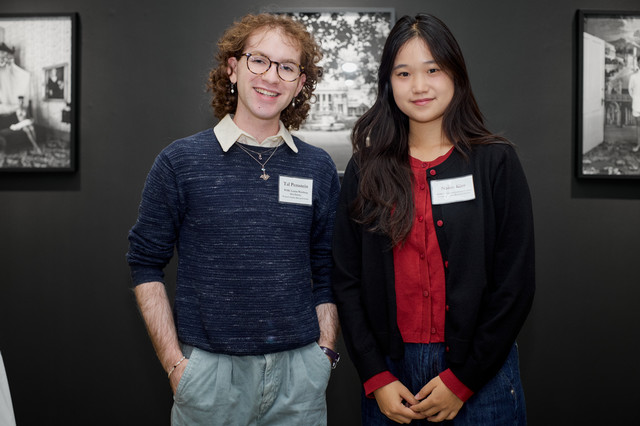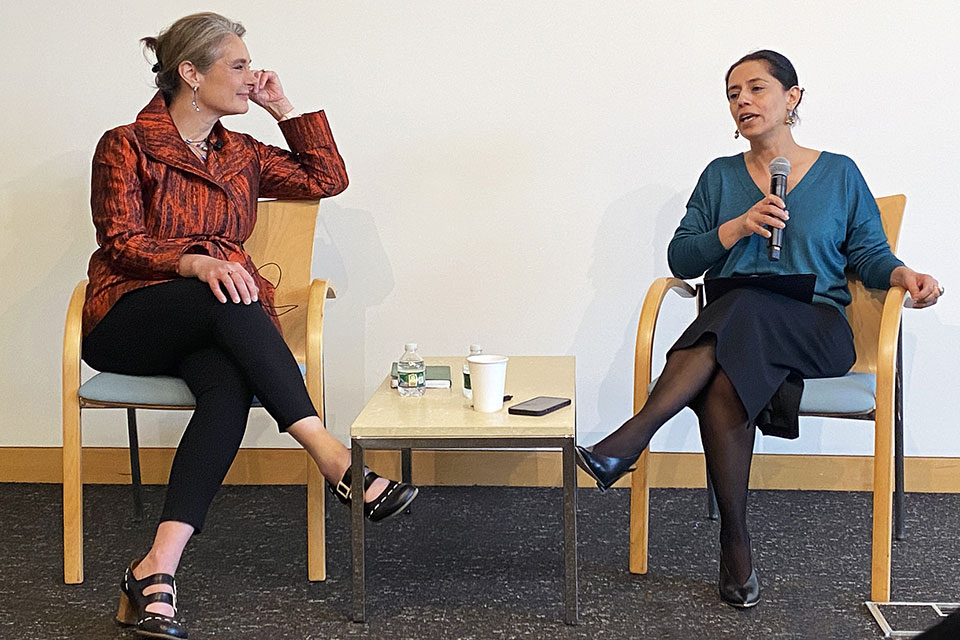The Women’s Studies Research Center (WSRC) at Brandeis University is a hub of interdisciplinary exchange between scholars, artists, faculty, and students, who conduct innovative research and create art with a focus on gender issues and women’s lives.
The WSRC, which hosts the Kniznick Gallery, the Scholars Program, and the Student-Scholar Partnership Program, advances knowledge, public dialogue, and social justice through interdisciplinary inquiry and the creative arts.
Current Happenings at the Center

December 9, 2025
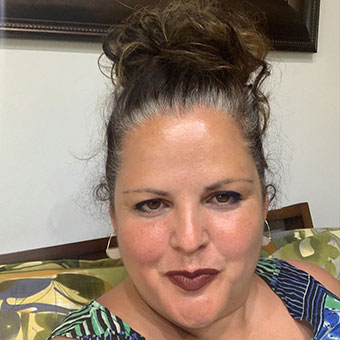 WSRC Scholar Marisol Negrón's book, entitled "Made in NuYoRico: Fania Records, Latin Music, and Salsa’s Nuyorican Meanings", published by Duke University Press, has been awarded a Certificate of Merit for "Best Historical Research on Record Labels or General Recording Topics" by The Association for Recorded Sound Collections. "Established in 1991, the ARSC Awards are given to authors of books, articles or recording liner notes to recognize those publishing the very best work today in recorded sound research. In giving these awards, ARSC recognizes the contributions of these individuals and aims to encourage others to emulate their high standards and to promote readership of their work. "(website https://arsc-audio.org/2025-excellence-awards-winners/). Please join us in congratulating Marisol Negron on this well-deserved recognition, and click on the weblink above for more information about this impressive prize.
WSRC Scholar Marisol Negrón's book, entitled "Made in NuYoRico: Fania Records, Latin Music, and Salsa’s Nuyorican Meanings", published by Duke University Press, has been awarded a Certificate of Merit for "Best Historical Research on Record Labels or General Recording Topics" by The Association for Recorded Sound Collections. "Established in 1991, the ARSC Awards are given to authors of books, articles or recording liner notes to recognize those publishing the very best work today in recorded sound research. In giving these awards, ARSC recognizes the contributions of these individuals and aims to encourage others to emulate their high standards and to promote readership of their work. "(website https://arsc-audio.org/2025-excellence-awards-winners/). Please join us in congratulating Marisol Negron on this well-deserved recognition, and click on the weblink above for more information about this impressive prize.
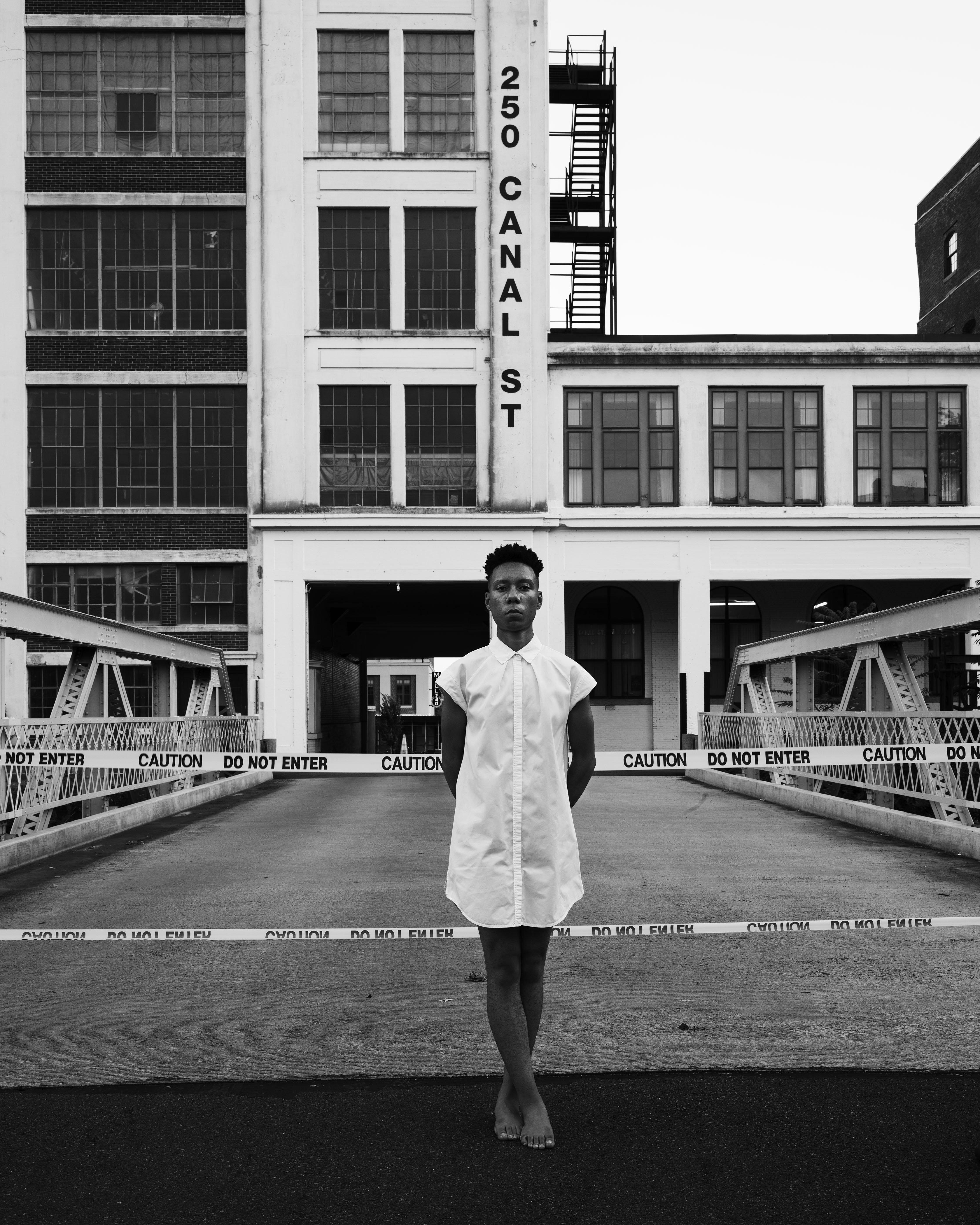
C. Rose Smith, Untitled no. 17, Pacific Mills, Lawrence, MA, 2022, Gelatin Silver Print
Photo Credit: C. Rose Smith
November 11, 2025
WSRC Scholar C. Rose Smith has been awarded the 2025 Arnold Newman Prize for New Directions in Photographic Portraiture. This award is a $20,000 prize awarded annually to a photographer whose work demonstrates a compelling new vision in photographic portraiture.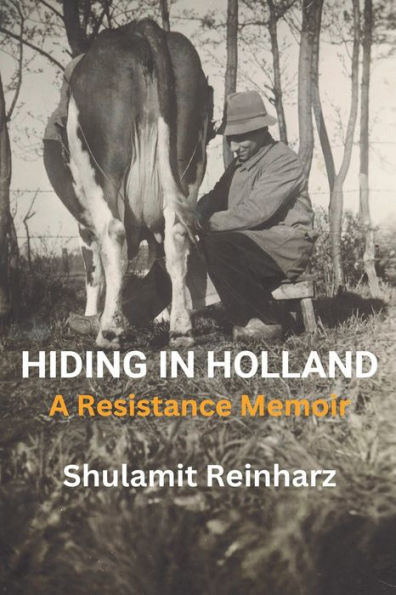
November 1, 2025
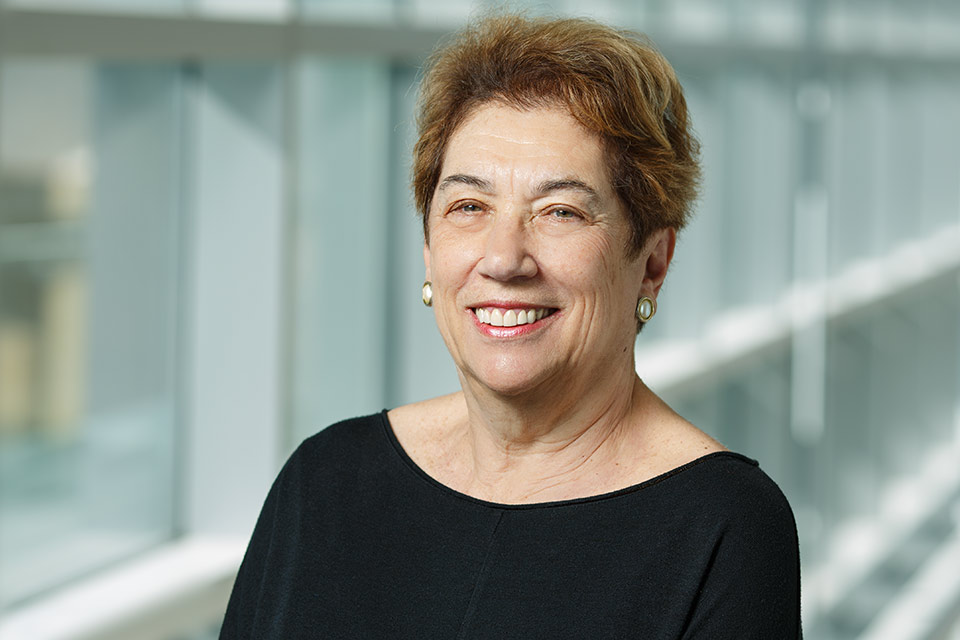 Last January, the Jewish Book Council named past WSRC Director Shulamit Reinharz, GSAS MA’69, PhD’77, the Jacob Potofsky Professor of Sociology, Emerita, one of two finalists for the National Jewish Book Award in the Holocaust Memoir category. Her book “Hiding in Holland: A Resistance Memoir” (Amsterdam Publishers, 2024) tells a Holocaust survivor story in two voices: that of Reinharz’s father, Max M. Rothschild, and Reinharz’s own. An interview with Reinharz about her book was featured in the Brandeis Magazine. Please join the WSRC in wishing Shulamit's book all the success it so deserves!
Last January, the Jewish Book Council named past WSRC Director Shulamit Reinharz, GSAS MA’69, PhD’77, the Jacob Potofsky Professor of Sociology, Emerita, one of two finalists for the National Jewish Book Award in the Holocaust Memoir category. Her book “Hiding in Holland: A Resistance Memoir” (Amsterdam Publishers, 2024) tells a Holocaust survivor story in two voices: that of Reinharz’s father, Max M. Rothschild, and Reinharz’s own. An interview with Reinharz about her book was featured in the Brandeis Magazine. Please join the WSRC in wishing Shulamit's book all the success it so deserves!
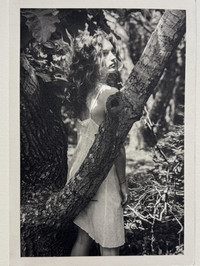
Photo Credit: Artist Donna Gordon
October 16, 2025
WSRC Scholar, Donna Gordon, has recently been awarded the 2025 Denis Roussel Award for Photogravure. The Denis Roussel Award was started in 2018 to honor the legacy of photographer and educator Denis Roussel, and to highlight work done by photographers whose work is based on the historical/alternative photographic processes, including silver gelatin. Gordon's talent is immense and we encourage you to view more of her work via her website. Congratulations, Donna!

Photo Credit: creative commons
September 25, 2025
WSRC Dissertation Scholar Marie Commuzzo was awarded a Mellon/ACLS Dissertation Innovation Fellowships for 2025. Her work is entitled "A Sonically Reimagined Silence: How the Discovery of Whale Songs Inspired an Environmental Commitment to the Ocean" and is centered out of the Brandeis Department of Music.
"This dissertation explores how the recognition of humpback whale vocalizations as “song” has shaped human perception of whales, fostering a commitment to their preservation." (https://www.acls.org/fellow-grantees/marie-comuzzo/) In a day and age where nature and wildlife need all the support and attention they can muster, we applaud Comuzzo's scholarship, and look forward to hearing more about her very important work.
Link to read for yourself: https://www.acls.org/fellow-grantees/marie-comuzzo/
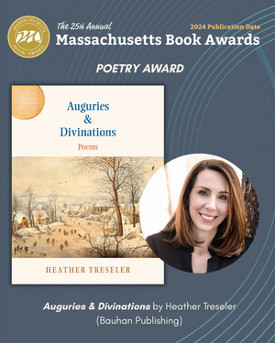
September 3, 2025
WSRC Scholar Heather Treseler's book of poetry, entitled Augeries and Divinations has been chosen for the 2025 Massachusetts Book Award in poetry. "The Mass Book Awards have been celebrating the talents of Bay State authors, illustrators, and creators for a quarter century now. These important books inspire and challenge us, they unpack difficult historical truths, and shape our understanding of the wild, wonderful, and sometimes confusing world that surrounds us. This year's awards reflect the creativity and vitality of the Massachusetts literary community,” observed Courtney Andree, Executive Director."
Written during her time at the Brandeis Women's Studies Research Center, we are all thrilled to see Treseler's talent, skill, insight and gift for language recognized. There will be a ceremony at the State House on Oct. 7 celebrating the awards, and it will be open to all. Please join us in congratulating Heather on this well-deserved and momentous recognition of her talent!
Click here to link to Massachusetts Book Awards page with more details.
Click here to read the September 3, 2025 Boston Globe Article, written by Isabella Bernstein, discussing the award and winners.
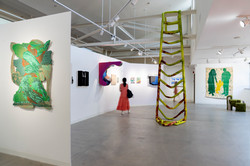
Photo Credit: photography by Elizabeth Ellenwood Photography
The current multi-artist show in the Kniznick gallery, “A Gathering: Gardens, Portals, Protests”, was recently reviewed in Art Spiel and received glowing reviews. From the article written by Adria Arch:
“Why do we need art in this moment? What art sustains both practitioners and audience in difficult times? These urgent questions pulse at the heart of curator and artist Olivia Baldwin’s extraordinary exhibition at the Kniznick Gallery, part of Brandeis University’s Women’s Studies Center—and the answers she’s assembled are luminous.
In an era where artists grapple with creating meaningful work amid political turbulence and global fragility, Baldwin has curated something rare: a collection that doesn’t merely respond to our moment but transforms it.”
Read the article and then come to the Women’s Studies Research Center Kniznick Gallery to experience it for yourself.
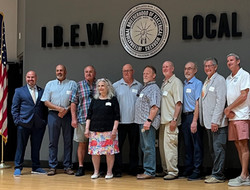
Susan Eisenberg on stage with other pin awardees
The International Brotherhood of Electrical Workers Local 103 held their pin night in Dorchester recently, and Susan Eisenberg, a WSRC Scholar, was awarded her 45-year-pin. Women were allowed to start working for the IBEW in 1978, when President Carter issued affirmative action regulations that opened construction industry jobs and apprenticeships to women. After graduating apprenticeship 4 years later, Susan began her professional career. Congratulations to Susan on her impressive achievement!
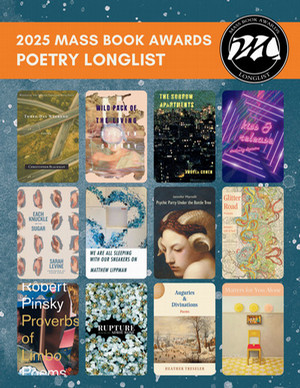
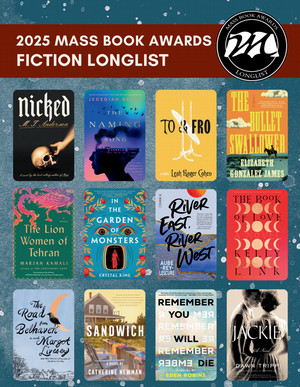 The WSRC is proud to announce WSRC Scholar Heather Treseler's "Auguries and Divinations" Poems is included in the longlist for the a 2025 Mass Book Award for Poetry LongForm, and WSRC Scholar Marjan Kamali's "The Lion Women of Tehran" was also chosen as part of the longlist for the 2025 Mass Book Award Fiction Longlist awardee. In the company of other talented writers, both Scholar's works are available for purchase online and at local bookstores. You are encouraged to read and treasure both.
The WSRC is proud to announce WSRC Scholar Heather Treseler's "Auguries and Divinations" Poems is included in the longlist for the a 2025 Mass Book Award for Poetry LongForm, and WSRC Scholar Marjan Kamali's "The Lion Women of Tehran" was also chosen as part of the longlist for the 2025 Mass Book Award Fiction Longlist awardee. In the company of other talented writers, both Scholar's works are available for purchase online and at local bookstores. You are encouraged to read and treasure both.
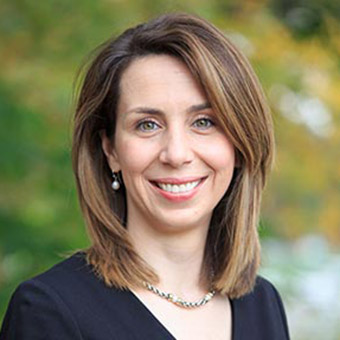
March 20, 2025
WSRC Scholar Heather Treseler will be launching her chapbook, Hard Bargain, in Boston with Ireland's General Consul, Sighle FitzGerald, at the consul’s residence on Marlborough Street on Friday, April 4, 2025. Hard Bargain was one of two manuscripts begun at the WSRC, and is the second to arrive in print. The chap explores some of the cruxes in women's lives in mythology, art history, medical history, and family lore, and the relationships between mothers and daughters. Poems in it have appeared in many journals (Journal of the American Medical Assoc., Missouri Review, The Hopkins Review, PN Review, Southern Humanities Review, etc.), and Plume recently published three with a short artist's statement.

March 3, 2025
Mass Cultural Council believes creativity has the power to transform society and make our state (Massachusetts) a better place to live, work, and thrive. Grants for Creative Individuals are unrestricted grants of $5,000 to Massachusetts artists, culture bearers, and creative practitioners to equitably advance creative expression throughout our diverse communities. Through this most recent round of applications, grants were awarded to current WSRC Scholar Margaret Gullette for the field of literature, current WSRC Scholar Susan Eisenberg for the field of literature, and alum WSRC Scholar Karin Rosenthal for the field of photography.
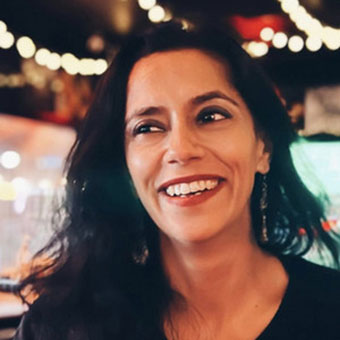
January 27, 2025
 In BBC's "History's Youngest Heroes", actress Nicola Coughlan (Bridgerton, Derry Girls) tells twelve true stories of rebellion, risk and the radical power of youth. This show is part of BBC's "History's Heroes": the BBC's breathtaking, high stakes, story-led history podcast feed that shines a light on extraordinary people from across history.
In BBC's "History's Youngest Heroes", actress Nicola Coughlan (Bridgerton, Derry Girls) tells twelve true stories of rebellion, risk and the radical power of youth. This show is part of BBC's "History's Heroes": the BBC's breathtaking, high stakes, story-led history podcast feed that shines a light on extraordinary people from across history.
This episode, released on January 27, 2025 shares the story of Rani Lakshmi Bai: The Warrior Queen. When her kingdom is threatened, a 22-year-old Indian woman takes on the British Empire on horseback, with a sword in each hand. WSRC Director Harleen Singh provides background and insight into this extraordinary person.
History's Heroes is a BBC Studios Audio production for BBC Radio 4 and BBC Sounds.
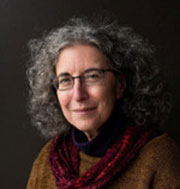
January 23, 2025
Award-winning writer and public health executive Michelle Bowdler, also a WSRC Scholar, has recently published a piece "How Do We Make Sense of a World that Disregards Sexual Violence?" in the commentary section of Cognoscenti on WBUR, a Boston local news station. Please link to the article HERE to read her timely and insightful communication. Michelle Bowdler is the author of "Is Rape a Crime? A Memoir, an Investigation and a Manifesto," longlisted for the National Book Award in Nonfiction and named a 100 Must Read Book by Time Magazine.
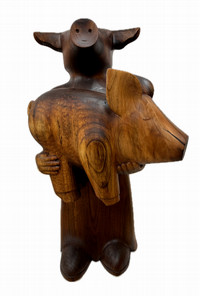
Photo Credit: artist Donna Dodson
December 10, 2024
An interview with Donna Dodson has been published in Art New England's November/December issue. Located on page 14, writer B. Amore visited her studio and had a lively conversation. Please check it out!
“The Circe Effect: Women’s Creative Power Reclaims the Narrative”, is a group exhibition at the Hotchkiss School's Tremaine Art Gallery, with WSRC Scholar Donna Dodson, among others. The exhibit is inspired by themes explored in the best-selling novel “Circe” by Madeline Miller, and the artists seek to address the issues surrounding the idea of when women orchestrate the narrative, stereotypes are challenged and recast. Find out more about this artistically thought-provoking exhibit.
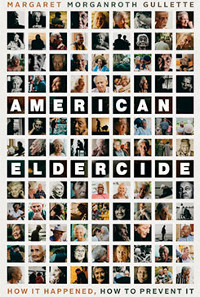
January 2025: The University of Chicago Press has nominated Margaret Gullette's book "American Eldercide: How It Happened, How to Prevent It" for a Pulitzer in nonfiction and the National Book Award. Read more about Margaret Gullette's newly published book.
1/9/25: Margaret Gullette has been interviewed on the American Society for Ageing website, on reasons why she decided to write "American Eldercide". Link here to read
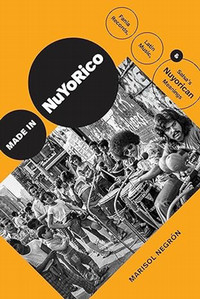
In Made in NuYoRico, Marisol Negrón tells the cultural history of salsa, tracing the music’s Nuyorican meanings over a fifty-year period... and how it capitalized on salsa’s Nuyorican imaginary to cultivate a global audience. Read more about Marisol Negron's newest offering.
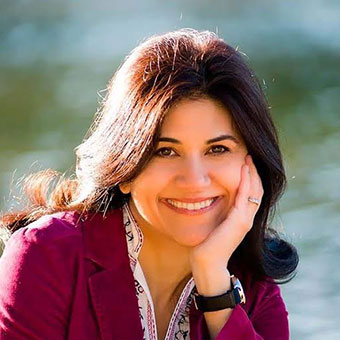
WSRC Scholar and accomplished author Marjan Kamali has published a new book, “The Lion Women of Tehran.” With glowing industry reviews from Oprah Daily and bestselling authors, this novel is not be missed. Read more about "The Lion Women of Tehran".
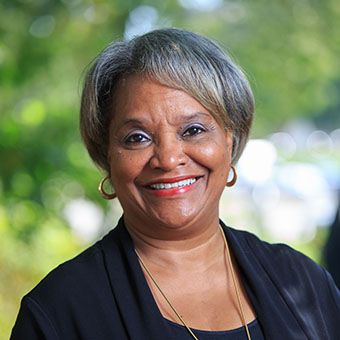
WSRC scholar Dr. Edith Chears has received a Fulbright U.S. Scholar Program award to Zimbabwe for the 2024-2025 academic year from the U.S. Department of State and the Fulbright Foreign Scholarship Board. Learn more about Dr. Edith Chears' award.
Current Exhibition at the Kniznick Gallery

On View: October 8, 2025 - Jan. 08, 2026
Rose Smith: A Silent Rage brings together black-and-white photographs taken on location at Southern plantations and Northern textile mills. By inhabiting the preserved living spaces of enslavers, Smith inserts their body in scenes dominated by whiteness and predatory industry. As both maker and subject, Smith reclaims and memorializes the formerly enslaved. Surveying the plantation grounds from an upper open window, seated at the head of an otherwise empty dining table set for eight, and nearly hidden among a gnarled tree, Smith critiques and subverts notions of coloniality.
